Notes about Power, from 'The Years of Lyndon Johnson: Master of the Senate'
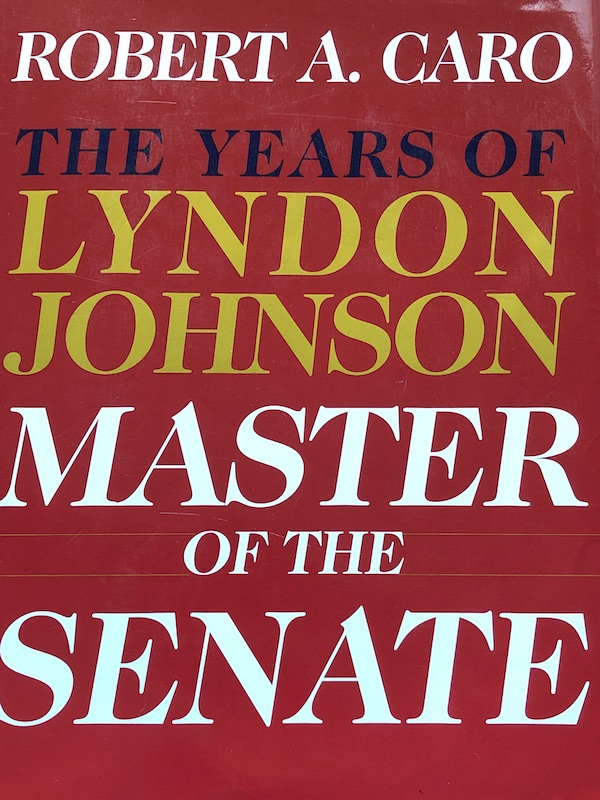
I finished reading Robert Caro’s “Master of the Senate”, which is the history of Lyndon B Johnson‘s time in the US Senate, and had a few learnings about power.
Power is structural
In the case of the Senate, the power comes from the US constitution, which has divided power across different parts of government. The Senate has the power of ratifying treaties, but also has tremendous power in blocking laws: much of the book is devoted to the repeated blocking of legislation (e.g. civil rights for black Americans, due to the Senate having a significant Southern faction that united their votes together, under the leadership of Georgian senator Richard Russell).
With the structural power accorded by the Constitution, procedures within the Senate often yielded great power, such as the filibuster.
Power is personal, and comes with a price
One of the first things Johnson did on arriving at the Senate, was to ask one of the Senate pages ‘who is the boss around here?’ And inevitably it was Russell, who led the Southern Caucus in the Senate.
This friendship with a blatantly racist man was a crucial cornerstone for Johnson’s power in the Senate, allowing him to pass the 1957 Civil Rights Act later.
The friendship and support was not without a price: the price was clearly for Johnson to kill the re-nomination of Leland Olds as chairman of the Federal Power Commission.
The other price was karmic: Johnson was clearly labelled as being a Southerner, and frequently earned the enmity of many Northern liberal Democrats who refused to work with him.
Power comes from being useful & productive
What was super fascinating for me was how Johnson came to wield power, without many significant official powers whatsoever. In the US senate website, they quote Johnson as saying that
the greatest power of the majority leader was “the power of persuasion.
The formal power of a majority leader is solely the right of first recognition:
When several senators are seeking recognition at the same time, the presiding officer in the Senate will call on the majority leader first, then on the minority leader, and then on the managers of the bill being debated, in that order.
Most importantly, a Majority Leader has no formal right or power to force another senator into a choice of vote.
And yet, despite this lack of formal authority, Johnson was able to wield the Senate into a powerful legislative body during his time as Majority Leader. He was able to remove the seniority rule which governed Senate committee postings. He passed many pieces of legislation which had bottlenecked in the Senate.
He created that power by being super useful and productive: he was able to let people know who was putting up what, when; he knew all the schedules; he was able to get the votes needed, and also able to tell people who consulted him who their potential allies were; he passed bills; he was able to give people what they really wanted, and implied that there was a future where he could remove what they wanted too.
Basically, he knew and controlled the information of what he knew, which was important and pertinent information.
Power comes from understanding & knowing
Which in turn frequently came from listening. He very frequently listened. This passage from the book was super eye-opening:
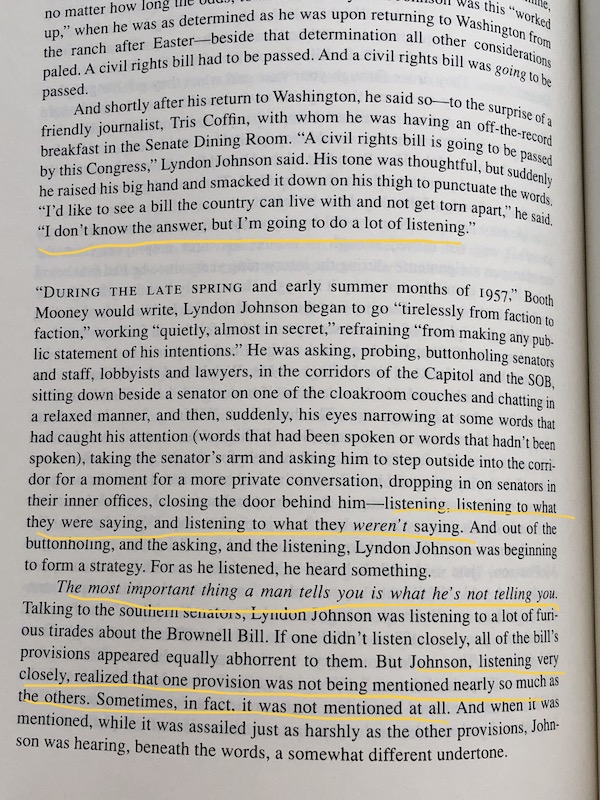
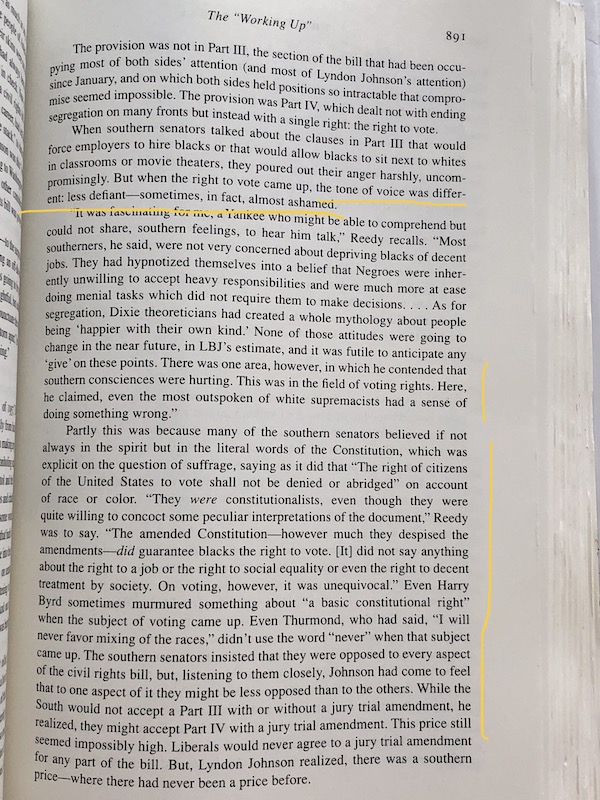
The most important thing a man tells you is what he’s not telling you.
Robert Caro, “Master of the Senate”
From the listening, Johnson was able to figure out what were the Southerners open to budge on, where they were open to change because they had a “sense of doing something wrong” in depriving black voters of their right to vote under the “literal words of the Constitution”.
Similarly, it was acts of listening which allowed Johnson to figure out how to get the support he needed. To pass the Civil Rights act, he needed a bloc of voters to support the South’s amendments. In order to do so, he quickly realised that he could create a transaction between the Southern bloc and the western liberal Democrats, with the South supporting the western Democrats on Hells Canyon (which was their key promise to their constituents) in exchange for the western Democrats’ support
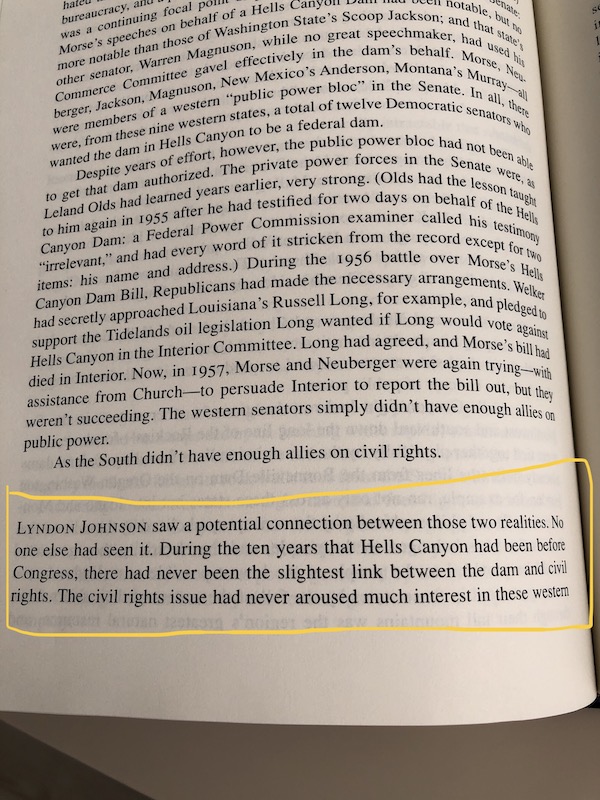
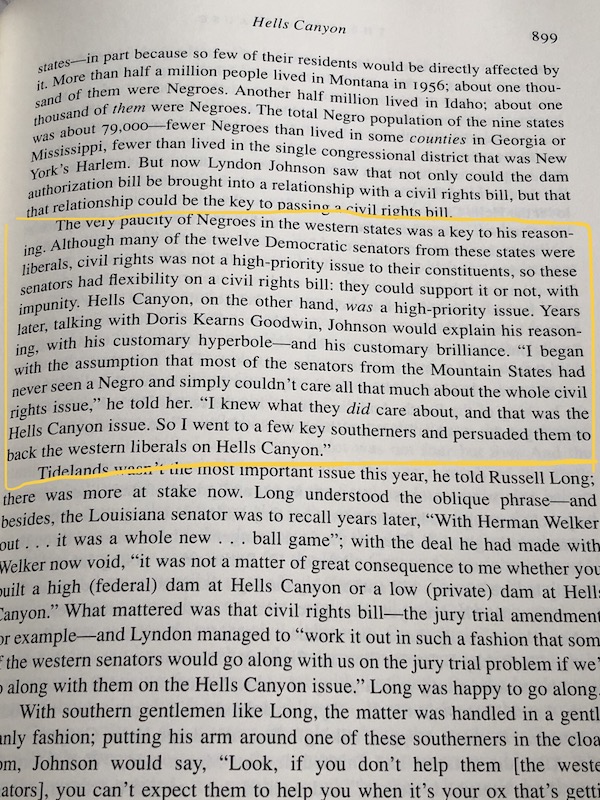
In other parts of the book, Johnson also uses multiple sources of information (including Bobby Baker, his protege) to know all the leverage points of the senators under him. So he knew which senator cared about what topics, what the senator didn’t care about, what they liked (e.g. he deliberately cultivated Russell who was a lifetime baseball fan, by going to baseball games with him), what and who they didn’t like, who they slept with, etc.
(Basically, think of how Frank Underwood knew all the details and did his counts in House of Cards: the Netflix series was inspired by LBJ and the Caro books)
All this information allowed him know who he could count on & what was needed to structure clear transactions of quid pro quos that secured him votes.
Power comes from prioritising the right sequence
In the 1957 Civil Rights act, the liberal faction of the Democratic Party had been vocally pushing for a radical law that changed all aspects of life in the South.
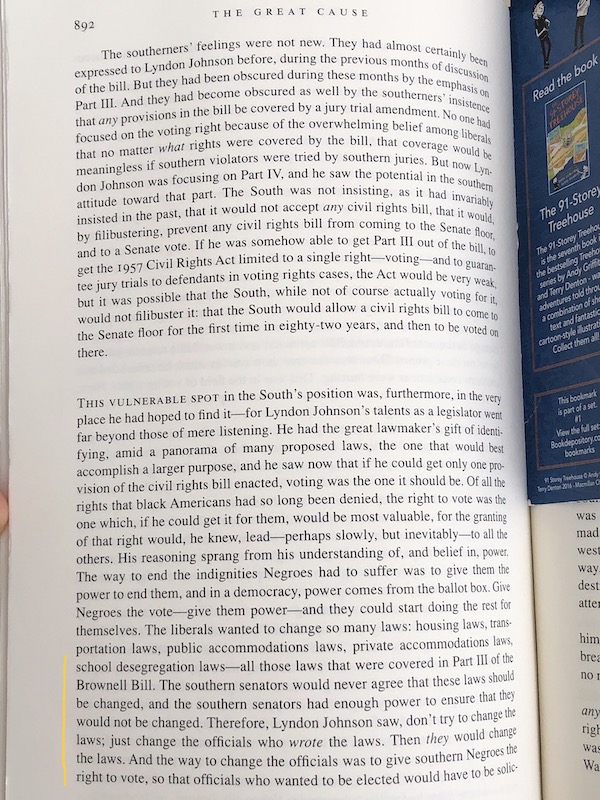 From his listening and also his understanding of power, Johnson saw that this radical law (Part III in the text) would never get the support from the Southern caucus. He also saw that, the important thing was to focus on changing the officials who wrote the laws, which was by giving black voters the right to vote. That paved the way for his later civil rights acts of 1964.
From his listening and also his understanding of power, Johnson saw that this radical law (Part III in the text) would never get the support from the Southern caucus. He also saw that, the important thing was to focus on changing the officials who wrote the laws, which was by giving black voters the right to vote. That paved the way for his later civil rights acts of 1964.
Power comes from creating common ground
In this day of polarization, it is easy to focus on how being extremely partisan seems to be the best way to drive things forward.
However, ultimately, institutional decisions still require some form of a collective decision, which invariably requires some form of common ground within a collective.
Some decisions are easy: you can split things in the middle with a compromise.
Others, like the Civil Rights act of 1957, are not so easy.
Johnson was stuck between the Southern faction and the Northern liberals. The Northern liberals wanted a civil rights act with teeth, which could actually be enforced. They did not want jury trials for civil rights violations in the south, because the South had a history of all-white juries voting in support of the existing racial status quo (i.e. whites got away scot free for lynching black folks).
The South wanted a civil rights act that was as toothless as possible, and also saw the removal of jury trials as a threat to the Constitution.
So what happens if you’re stuck between a rock and a hard place? You create common ground!
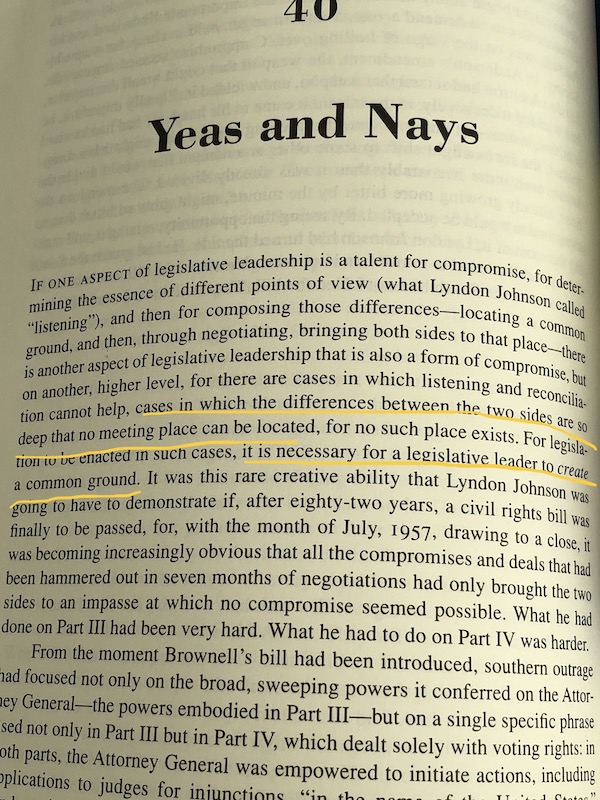
Of course, it helps if you have other experts who can help: in this case, Johnson had a lot of help from Ben Cohen, who had come across an article that proposed the creation of the legal common ground, in the form of civil (rather than criminal) contempt proceedings as an enforcement mechanism. It allowed both sides to claim a win.
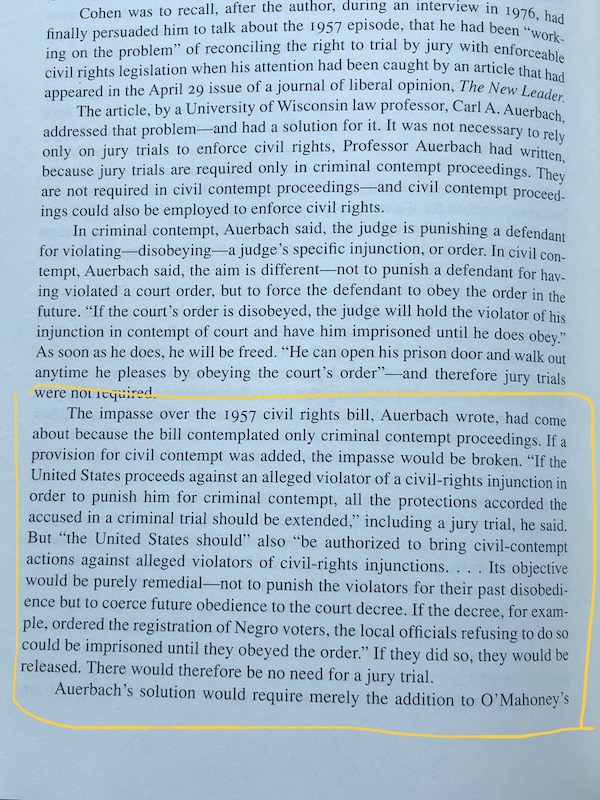
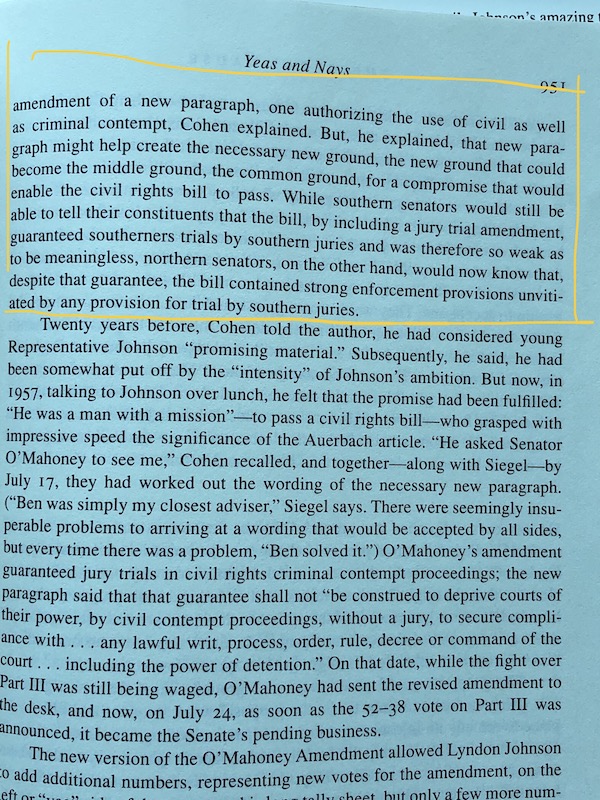
#power #lyndonjohnson #robertcaro